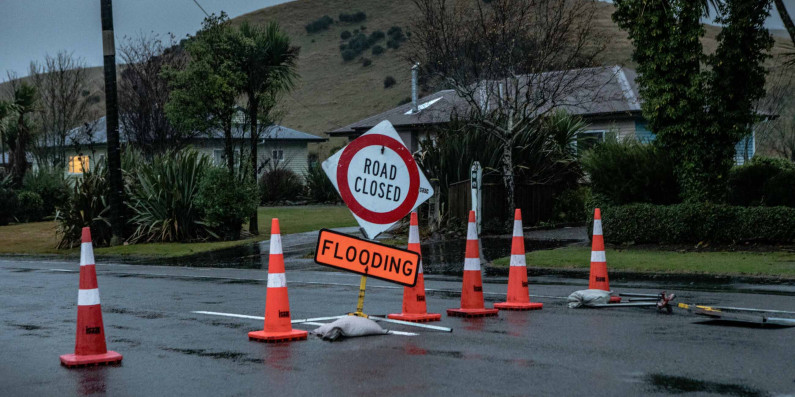Scientists globally agree that climate change is increasing the frequency and intensity of extreme weather events, and that those impacts will continue to worsen in the future.
While Aotearoa New Zealand’s highly variable weather patterns can make it difficult for scientists to directly attribute individual storm events to climate change, there is a growing body of local evidence and research that the warming world is having an impact on the extreme weather we experience here.
That can include both increasing the frequency of extreme weather events such as heavy rainfall and flooding, and making them more severe.
Below, we have summarised recent research into the impacts of climate change on severe weather in Aotearoa.
- The Intergovernmental Panel on Climate Change (IPCC) released its Sixth Assessment Report (AR6) in 2021. In it, the global panel of climate scientists projected that floods across the world will continue to become more frequent between now and 2050.
- It is also projected that severe convective storms (thunderstorms) will carry more rain in a warming world
- Global mean surface air temperature has increased by 1.09oC over the past century. For Aotearoa New Zealand, the atmospheric warming between 1909 and 2016 was 1.1oC.
- One degree of warming in the air translates, on average, to about 7 per cent more water vapour in that air, the IPCC found. While the atmosphere has a higher capacity to “hold” water vapour at higher temperatures, the heavier air masses result in rain bursts that can be 10 to 20 per cent heavier.
- NIWA produces regional climate projections for New Zealand based on the IPCC’s data. NIWA estimates that in New Zealand, one degree of warming translates to a median 13.5 per cent increase in rainfall per hour in a one-in-50-year event of 1 hour duration (MfE, 2018).
- NIWA also projects more intense regional cyclonic storms in the southern hemisphere by 2100, and an increase in the frequency and extent of atmospheric rivers affecting Aotearoa New Zealand, which could bring more rain. Atmospheric rivers are plumes of moisture in the air that move from the tropics to the mid-latitudes and are closely related to extratropical cyclones. They are projected to become more frequent with increased atmospheric warming.
- The Extreme Weather Event Risk Attribution Machine research project, which received funding from the Ministry for Business, Innovation and Employment’s (MBIE) Endeavour Fund, studied the effects of climate change on severe weather events in New Zealand.
- In 2021, it found that extreme rainfall events causing flooding in Canterbury were 10 to 15 per cent more intense as a result of climate change.
- It has also found that previous individual weather events have been made worse by climate change. For example, it estimated that the extreme weather, and associated flooding, on the West Coast in 2021 were approximately 10 per cent more intense due to climate change (Stone et al, 2022).
- The damage and economic cost from extreme weather events has also been intensified due to climate change. A recent study (Frame et al, 2020) found that $140M of the total $470M in damages from the 12 worst flood events in New Zealand over the period 2007-2017 were directly attributable to climate change. The Insurance Council of New Zealand said extreme-weather related claims for five events in July and August 2022 led to claims valued at $123.8M.

